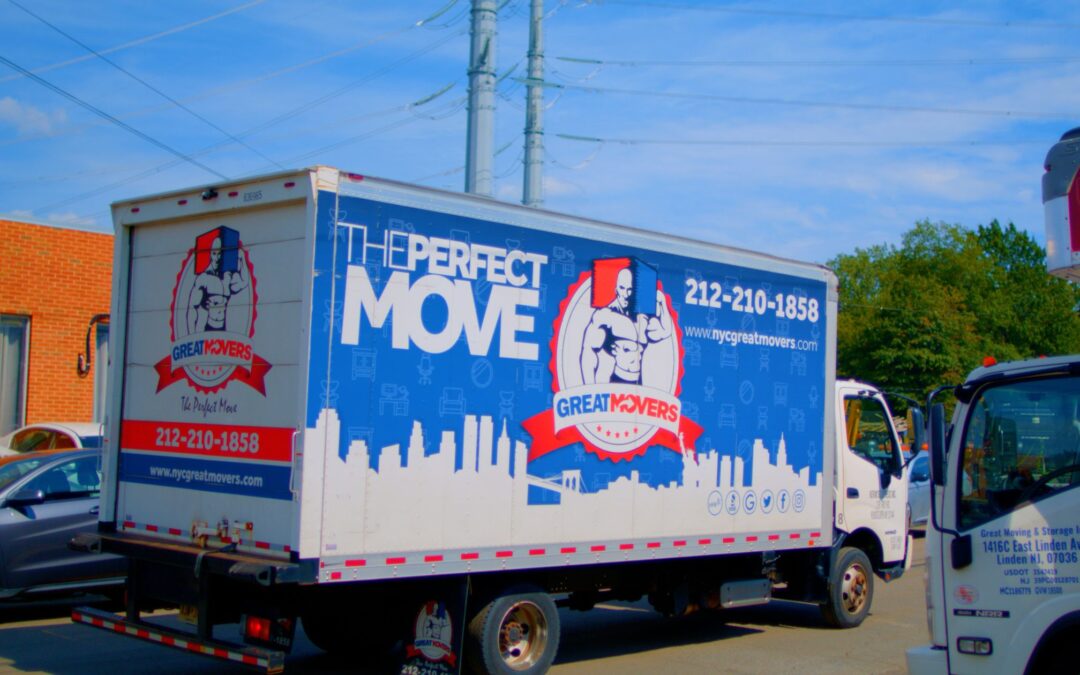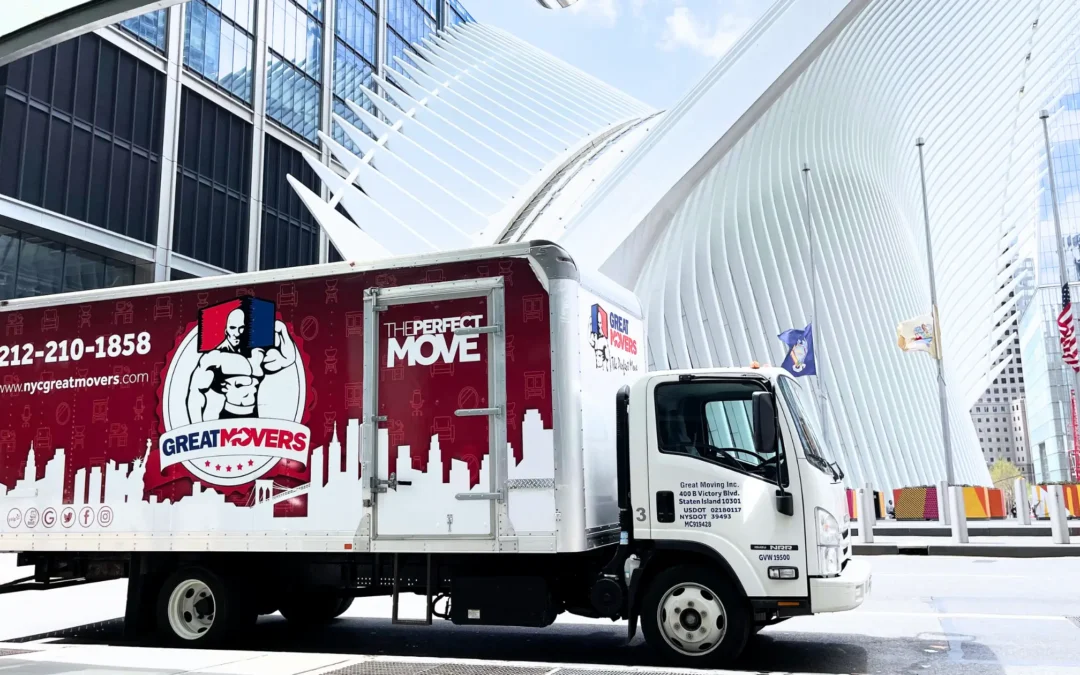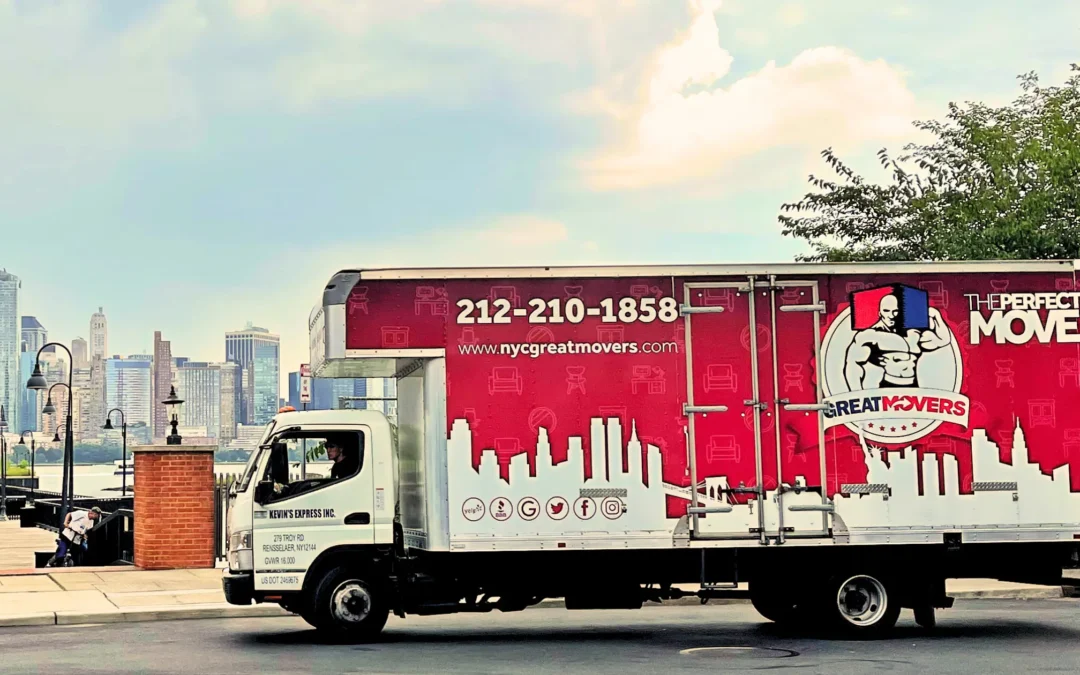How much does moving cost in NYC? It’s one of the most common questions most NYC movers, including us, hear. However, the cost of your move will vary based on your circumstances. On average, moving locally to a studio or one-bedroom apartment in NYC costs around $800-100 with prices increasing from there. These base prices don’t factor in other costs that can affect your budget. So if you want to prepare financially for our next move, here’s how you can calculate and even save money on your next relocation.
Cost of Moving in NYC
Moving isn’t cheap. Even if you plan to do everything yourself, there’s still moving costs that you need to factor into your budget. Still, if you plan on renting a truck or van and doing it yourself, your costs will be significantly lower. You can generally count on family or even some friends to help you move, especially if there are some incentives for them whether that’s drinks and pizza or a little bit of cash for their troubles. The DIY route is a great option if you’re strapped for cash and want to move on your own schedule. Of course, you still have to move out when your lease is up, but you don’t have to wake up early to let professional movers in and you can still do a bit of last minute packing if you weren’t able to finish everything.
The biggest downside to DIY moves is the fact that everything falls on you from the packing to driving on the narrow NYC streets to finding a parking spot to loading and unloading all of your belongings. It’s a LOT of hard work. Work that you and your friends aren’t used to doing. While moving might seem simple on the surface, there are plenty of nuances that professional movers know to keep your belongings safe. More importantly, if you move your own stuff, it means carrying bulky furniture, which could lead to property damage or worse, personal injury. There’s also the very real possibility of getting in an accident since you’ll be driving a vehicle you aren’t used to handling. Even if things go smoothly, you’ll be spending a lot more time and energy moving yourself.
Hiring a professional will cost you more, but you can leave everything in their hands. Not only do they move practically every day, they receive ongoing training on best practices and safety regulations. Local NYC movers know all five boroughs intimately, so they can navigate the streets without any issues and get your items to your new place within the allotted time frame. And since they are trained, they know exactly how to load and unload your belongings to make sure everything remains unscathed during the move. That includes the buildings you are moving out of and into. Even if you don’t want to hire movers, you might need to as many newer buildings won’t let you move your stuff unless you can provide a certificate of insurance. Some buildings won’t even let you reserve the freight elevator until they receive this form. Chances are, you won’t be able to provide this information as an individual, so you will need to hire an NYC mover.
The costs associated with your move generally depends on how much stuff you have. If you’re moving locally, you’ll get charged an hourly rate, so more boxes = more time. On the other hand, long distance moves charge per pound or volume as well as distance traveled so your final bill will vary. You might not have a lot of stuff, but if you’re moving a lot of heavy and large items, it could cost you more than a dozen or so little boxes. Other factors that can affect your moving cost include:
-
- Additional fees – do you need to make an extra stop between your old house and new house? Are you moving to and/or from a walk up? All of these add extra charges to your bill. Make sure to ask the movers about any extra fees they might have such as travel, materials, etc. They should be included in a line item on your quote.
- Packing services – most moving companies do offer a packing service, but this will really bump up your final budget as they will charge you hourly.
- Storage – if you can’t move into your new place right away, you’ll have to put your belongings somewhere. Most moving companies do offer storage, but you could potentially find a better deal at other storage companies.
- Moving supplies – You’d be surprised how quickly supplies can add up! All those boxes, tape, markers, etc. can add a couple hundred dollars to your final bill.
- Tips – While not mandatory, if your movers do a good job you should tip them. The general rule is to tip around $4-5 per person for each hour of work. So for a small one bedroom apartment that took around 4 hours, you should tip each person around $20.
- Insurance – professional NYC movers offer basic moving insurance, but it won’t really help if they somehow break or lose your expensive items like cameras and TVs. If you have a lot of precious artwork, electronics, etc. You should invest in a third party insurance that will cover you for the full estimated cost of the items.
Moving Quote Terminology
When you first reach out to a moving company, chances are you will fill out an online form describing your needs. Before the COVID-19 pandemic, the movers would come to your apartment to see how much furniture and other items you had and would give you a general quote based on that. Now, many movers are asking for a video/virtual tour of the home so they can get a general idea of what to expect. Most movers who have been in the business for years can give you a fairly accurate quote so when the final bill comes around, you won’t have any surprises. With that said, reading through a moving company estimate can be confusing so here are some things to look out for:
- Charge by hour, weight, or cubic feet – different movers charge in different ways. You should try to avoid movers that charge by weight or cubic feet especially for local moves. Many questionable movers will also underestimate weight or volume and then lock you into doing business with them with their quote despite knowing that you will pay more in the end. While unreputable movers can also tack on extra hours to their final estimate, it’s a bit harder to get away with and even if you have a couple of extra boxes it won’t affect your final bill.
- Bill of lading – also shortened to BOL, this is the official contract between you and the movers and is the most important document you will receive. Read it over carefully before signing and make sure that everything is listed correctly.
- COD – short for ‘cash on delivery’ this means you will need to pay once everything arrives at your new place. Always ask the movers what payment methods they accept.
- Materials Cost – if the movers had to pack a few things for you, you will likely see this charge on your final bill.
- Stair/Flight fees – In NYC, most movers will charge you a fee for each flight of stairs they need to go up and down so if you’re moving to and from a walkup, you should set aside some extra money
- Travel fees – Movers will include the cost of travel from their garage to your old apartment and back to their garage from your new apartment. It might sound obvious, but the further away your apartment is from the mover’s garage, the more it will cost you so always try to get local NYC movers if moving within the city.
Cutting Costs
So you’ve calculated out your moving costs and they’re more than you expected. Luckily, there are a few things you can do to save some money:
- Declutter – the easiest way to save money is to get rid of stuff that you no longer want or use. Start this process early on by going through each room and putting everything through the 6-month test. If you haven’t used it in six months, you probably won’t use it when you move. You can donate to goodwill or, if you want to make some extra cash, sell them online or at a yard sale.
- Pack yourself – this might seem obvious, but you can save yourself a lot of money by just packing everything yourself. Plus, there’s the added benefit of knowing exactly where you put every item.
- Look into moving discounts – If you happen to own a car and have a AAA membership, you might be able to get a discount whether that’s getting free Full Value Protection insurance or a small cost savings on the final bill. Some companies also offer a military discount. In addition, you can just ask moving companies if they have any promotions. While you might not be able to get anything during peak moving season between May-September, you might be able to get a small discount during the slower months, especially in the winter time.
- Look for free or cheap moving supplies – An easy way to slash your costs is to seek out free moving boxes and supplies from local businesses. You could also find some online on sites or your local Facebook group. Once you’re done moving, don’t throw those boxes out! If they’re in good shape, offer them up to someone else who might be moving. You can also use what you already have. Instead of buying bubble wrap, use towels or shirts to package fragile items and fill in the gaps with old junk mail or newspapers. Before you buy boxes, see what you already have available such as backpacks, suitcases, duffel bags, etc.
- Get quotes from multiple movers – You should never go with the first mover you find online. Instead, you should always reach out to a handful. You’re less likely to get scammed and you can better negotiate rates.
Conclusion
Ultimately, moving costs will vary depending on your needs. At the end of the day though, the more stuff you move, the more expensive it will be for you. Luckily, you can decrease your costs in a variety of ways. With that said, even if you are doing a DIY move, you should still set aside at least $800 for the move if not more. This way you can rest assured that you are able to cover any last minute costs.
Ready to move? Then reach out to NYC Great Movers. We offer affordable and reliable moving services to all of your customers.
FAQ
Can moving costs be deducted?
If you’re donating items to charity before or after a move, make sure to itemize all of the belongings and record their cash value. You should be able to claim a deduction. If you work for the military, your moving expenses can also be deducted.
Will it cost more if I move during the holidays or the weekend?
It depends on the moving company. Some moving companies will charge a premium for weekends and holidays as that is a very busy time. Others will not. If you have to move on the weekend or holiday, make sure to call up several moving companies and get quotes.
What else should I consider before hiring a professional NYC moving company?
Professional movers are not cheap. If you don’t have the cash to hire them, then look into DIY alternatives. You might need to enlist the help of your friends and family, but it will only cost you the cost of the rental, fuel, and maybe some pizza and beer after the move. If you have more room in your budget, hiring movers might be worth it as it will save you time and energy. It’s up to you to weight the pros and cons of your moving method so make sure to think carefully.






